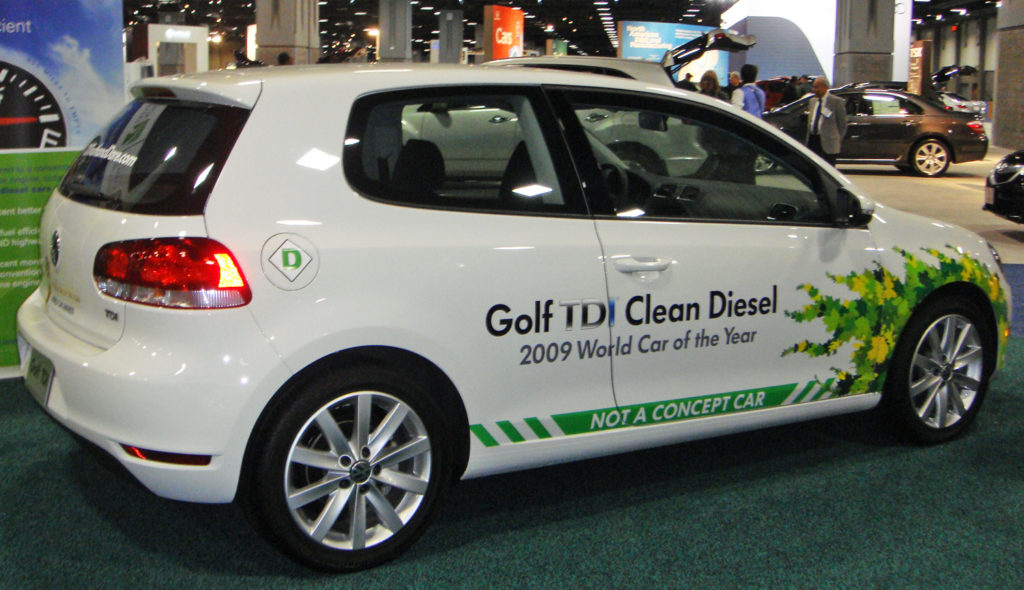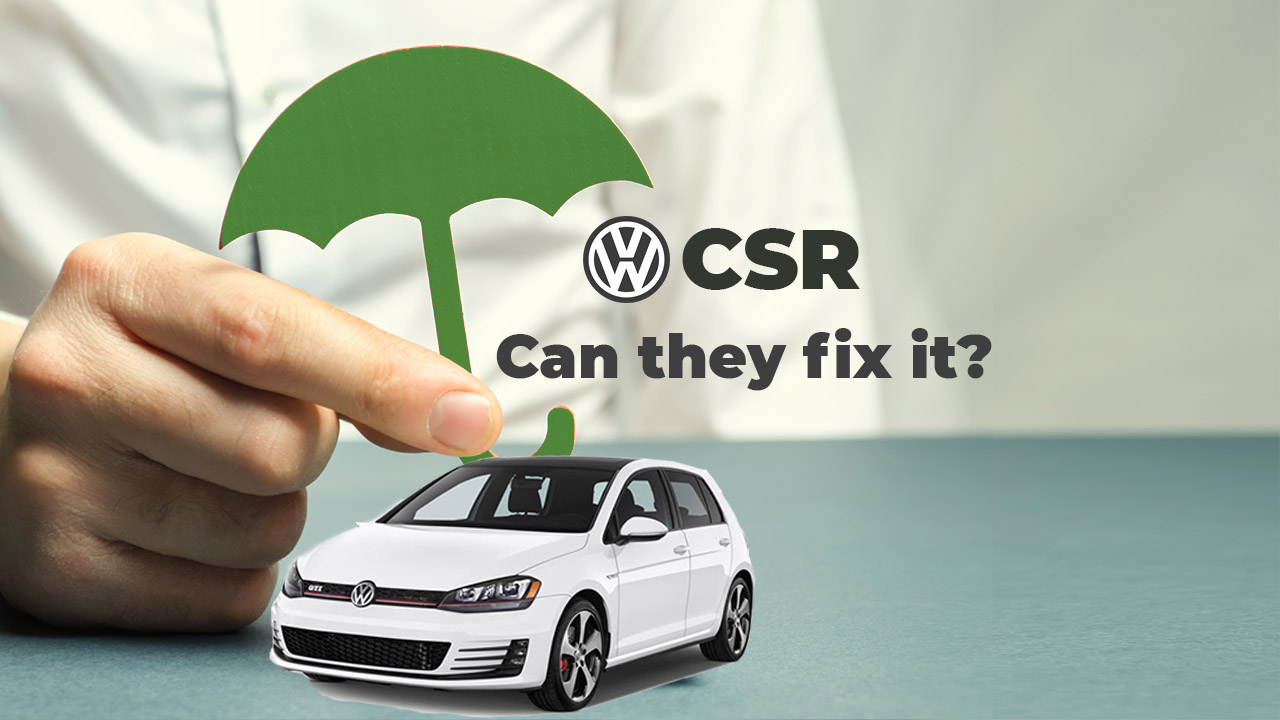Volkswagen is one of the most interesting case stories when it comes to corporate social responsibility. Their reputation was horribly ruined because of a mega scandal. What makes this a compelling case study is their fall to a disgraceful position and attempt at an image makeover. Should we take Volkswagen corporate social responsibility seriously? Let’s find out.
Contents
The mega scandal (2008-2015)
Volkswagen was mired in a controversial CSR scandal in 2015. It was the Volkswagen emissions scandal or the Dieselgate scandal. The company used defeat devices. The defeat device was essentially a mechanism to ensure two different modes of operation for their diesel engine. The device controlled the NOx output and therefore passed the emission testing with flying colors. On the other hand, it deactivated this pollution control and therefore it created 40 times higher NOx than the tests while on road.

This was known to the highest-level executives of the Volkswagen Group. Subsequently, the CEO as well as Audi’s R&D head, were indicted. As a short term loss, their market value went down by a whopping 23% by September 2015. However, the total loss incurred by the company is estimated to be much more than US dollars. 8 billion.
Overview of Volkswagen Corporate Social Responsibility
It is difficult to summarize the entire CSR effort by such a large firm. However, we attempt to provide key points from their annual sustainability report.
- The company has declared that they are committed to the Paris climate agreement’s goal. The goal is to limit global warming to 2°. In order to achieve this feat, the company intends to reduce its carbon footprint. They plan to reduce greenhouse gas emissions for both passenger cars as well as commercial vehicles. Alternatively, the company is also investing in electric mobility.
- The second important goal mentioned in their annual report is that they want to move towards a circular economy. A circular economy ensures that we take bare minimum resources from nature and reuse the products without dumping them back. The net effect of the circular economy is reduced carbon dioxide emissions. Secondly, it also reduces the overall water, an energy requirement for production. Thirdly, it eliminates or minimizes the waste and toxic materials that are dumped.
- Commitment to environmental compliance. This is one of the trickiest and most difficult aspects of CSR at Volkswagen Group. The company has looked at strengthening its corporate governance practices. Additionally, they have also put into place checks and balances to prevent such corrupt practices. They’re following the mantra of Prevent, Detect and React to act proactively on such cases.
Current CSR philosophy at Volkswagen
| Mission | “For all our products and mobility solutions we aspire to minimize environmental impacts along the entire lifecycle – from raw material extraction until end-of-life – in order to keep ecosystems intact and to create positive impacts on society.” |
| Vision | “Compliance with environmental regulations, standards, and voluntary commitments is a basic prerequisite of our actions.” |
Is it all over, or it can be fixed?
One of the most disheartening aspects of this entire scandal was the sheer level of corporate lying that was detected in the annual report. They were rated by the Dow Jones Sustainability Index as the 2015 best company for corporate sustainability practices. Even inside their annual report, they had mentioned that they were highly committed to sustainability, Environmental Protection, and social responsibility. However, that was their public face. Privately, they were indulging in extremely unethical malpractices resulting in a massive amount of toxic emissions.
It is never ‘the end’ unless we give up. For instance, Nike is an example of CSR, disaster, and turnaround. There was a massive outrage against Nike’s system of shoe manufacturing. Consumers started boycotting products of Nike when it was discovered that some of the shoes were getting made in exploitative sweatshops.
Volkswagen can take a clue from Nike to clean up its mess. In fact, they’re doing just that. Some of the ways in which Nike has turned around its CSR image are:
- Seeking professional help in auditing their production chain.
- Establishing industry standard practices for supplier selection.
- Becoming extremely transparent in reporting of these details in their annual report.
The road ahead for Volkswagen Corporate Social Responsibility
One of the first steps towards solving a problem is to accept the mistakes. Volkswagen seems to have done this step alright. The message on their CSR page reads:
“When it comes to the emissions issue, we have failed to live up to our own standards in several areas. The irregularities in the handling of emissions tests contradict everything we stand for.”
The company has been releasing Group Sustainability Report from the last several years. At the same time, they are following international CSR reporting guidelines.
Volkswagen has also teamed up with Microsoft Germany to work together on sustainability initiatives. Microsoft Corporate Social Responsibility is highly regarded and this joint venture could help the Volkswagen group as well.
